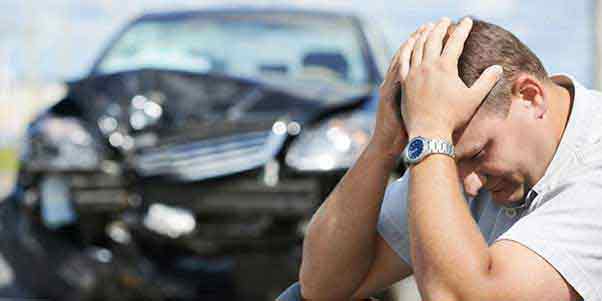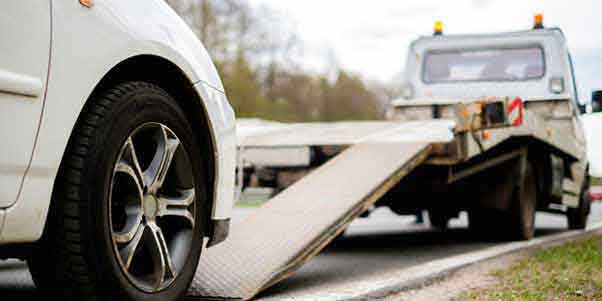
No matter how serious a car accident is, it can be mentally and physically distressing. Even small automobile accidents can quickly raise your stress levels and leave you physically exhausted. If you are involved in an automobile accident, whether you are at fault or not, there are a few actions you can do to help you navigate this stressful situation without exacerbating it. When you are involved in an accident, it is natural to feel rattled. Follow these simple steps after a car accident to help you in the aftermath of a traffic accident.
• To relax, take a few deep breaths
Following a collision, a person may experience a variety of feelings, including shock, guilt, anxiety, uneasiness, and fury, all of which are natural. To relax, take a few deep breaths or count to ten. You will be better prepared to manage the issue if you remain cool. This is the time to assess the situation and determine whether or not the accident was serious.
• Ensuring safety
Take a moment and try to relax, do not panic. Determine any injuries and see if they need quick medical attention. Call the police and stay at the scene till the help arrives.
• Gathering Information
Exchange information with all the people involved in the accident. Try to find a witness and talk to them to determine what exactly happened. Do not forget to take pictures of the accident scene.
• Dealing with Claims and Lawsuits
If you have any insurance, then file for the claim. Hire a good lawyer if there is further investigation. Keep documenting all the medical treatment, might help with the insurance claim.
Examine for injuries and filing a report
• Who?
If the authorities need more information from you later, the dispatcher will ask for your name and phone numbers.
• What?
Tell the dispatcher all you know about the emergency, such as if it's a fire, a traffic danger, or a medical issue.
• Where?
Let the dispatcher know the specific location of the situation. Give them your city, street name, street number, mile markers, travel direction, traffic signs, and anything else you can think of to assist them find you.
Insurance claim intimation
Insurance claim intimation is the process of notifying the insurance company of an accident. In most cases, the insurance company will ask that you provide them with a police report so they can assess the situation and see if they wish to pay the claim. The insurance company will also want to know what property has been damaged, as well as any injuries that have been sustained. You can also provide them with any contact information for any witnesses who may have seen the accident.
How to tow vehicle to workshop

After a car accident, it is very important to act fast and tow your vehicle to a workshop. You will need a towing company that can tow cars in a safe manner so that your car will not be damaged while it is being towed to the shop. This can be a very tricky situation, and you need to make sure that you act fast so that you can move your vehicle to a workshop as soon as possible. All you need to do is call your nearest car towing service and ask them to tow your vehicle to the workshop as soon as possible.
How to find right workshop
Finding the right repair shop is one of the first steps to having your car serviced. Here are some tips on how to find the right car repair workshop.
- Ask for recommendations from your friends and neighbours.
- Look for recommendations and reviews online.
- Always ask for valid certification from the workshops.
- Ask about the warranties and discounts the workshop provides.
- Ask your insurance company if they have any recommendations
Which documents need be ready
Insurance claim documents are the documents that you file with the insurance company. These documents are of utmost importance and should be filled out with utmost care.
- Car insurance policy paper
- Driver's Licence of the person driving.
- Registration certificate of the car.
- Valid claim intimation.
- Proof of identification such as Aadhar card and PAN card.
- Estimate of repair and a proper invoice of repair.
- Receipt of payment made.
- A valid cancelled cheque
The Repercussions
While the accident may be distressing in and of itself, dealing with the aftermath can be equally so. Some folks may still be disturbed up in the hours or days after an accident. They might be berating themselves for what happened, especially if they believe the crash might have been avoided. People close to those who were involved (such as families and best friends) can sometimes have emotional issues as well. All of these emotions are normal. Most vehicle accidents fade into the background once some time has passed, the car has been fixed, and the insurance companies have been dealt with.
However, in other situations, these sentiments can become stronger or persist longer, preventing a person from leading a regular life. After a traumatic event that wounded or threatened to injure someone, posttraumatic stress disorder (PTSD) might develop. PTSD symptoms might appear minutes, hours, days, weeks, or even months after a car accident. Not everyone who is stressed after a traumatic event develops PTSD. However, there are several warning signs to look out for:
- avoiding any emotional reactions or recollections of the incident
- Feelings of anxiety, irritability, or rage on a regular basis
- avoiding medical procedures or examinations
- reliving the incident over and over in one's head
- Nightmares or sleeping problems
Therefore, if you require assistance, seek it.